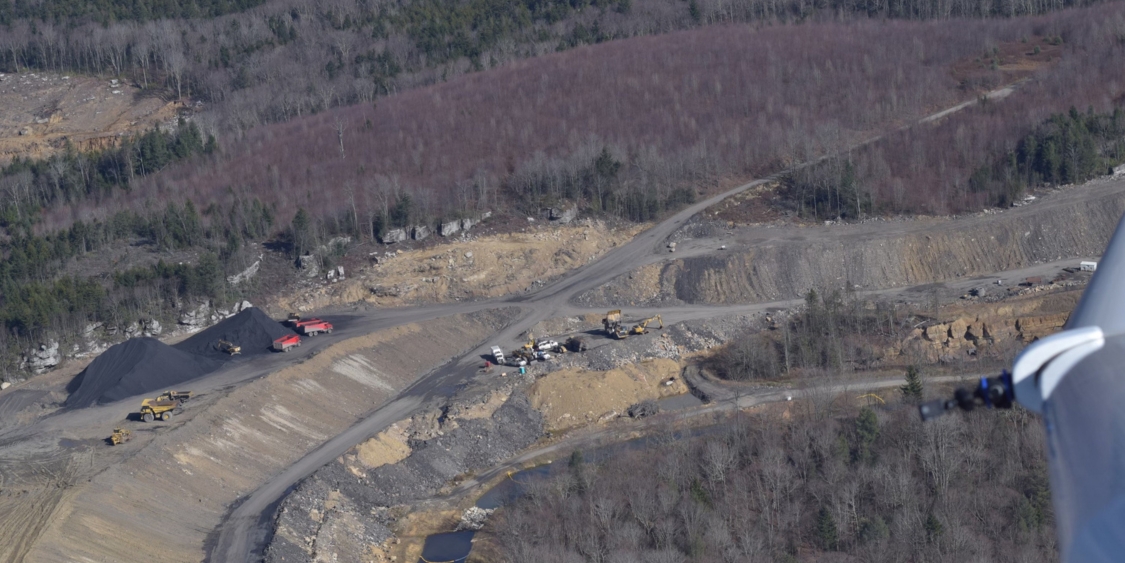By Andrew Young
The South Fork Deep Mine No. 2 is up for its sixth Surface Mining Control and Reclamation Act (SMCRA) permit renewal. The West Virginia Highlands Conservancy is opposed to any SMCRA permit renewals or new permits in critical habitat for the endangered candy darter, and particularly to a company like South Fork Coal Company with tens of thousands of dollars in delinquent fines and dozens of chronic, ongoing water quality based permit violations across their facilities in this area.
This deep mine complex is sealed and abandoned, but South Fork Coal Company has not been released from its bond on the permit. The deep mine permit area has been reclaimed, and all disturbed and reclaimed areas still flow through a sediment control structure. Chemically treated water continues to flow through the action area and then on to critical habitat for the endangered candy darter. There is no mining of coal on this site and there has not been for quite some time. Despite the lack of deep mining carried out under the permit, there is plenty to be suspicious of.
A curiosity with the South Fork Deep Mine No. 2 is that the permit action area is adjacent to and overlapping with the Monongahela National Forest, and the deep mine complex goes extensively underneath the National Forest. When FOIA’d, the Forest Service said they had no records related to this deep mine, despite it being around since the 1990’s, nor any records connected to South Fork Coal Company’s near decade of unpermitted commercial use of two Forest Service Roads (coincidentally the same two roads at the center of our ongoing lawsuit against the USFS) to support the coal operation.
That the Forest Service was not even provided notice about the mine is un-neighborly at best. Still, the lack of a commercial road use permit here has thrown up a serious red flag about both Department of Environmental Protection’s ability to ensure their SMCRA permits are compliant with all permitting requirements, as well as the Monongahela National Forest’s ability to conduct oversight on their own lands they are charged with managing in the public interest. This is important here because the Forest Service has previously acknowledged that toxic mine drainage is impairing Bear Run, but they have not specifically narrowed the responsible party to the South Fork Deep Mine because apparently, they didn’t know it existed! It is almost so unbelievable and tenuous a position to be comical.
Rest assured, we will get to the bottom of this one way or another, and we may need to ask for your help in elevating this issue. Clean water and healthy public lands are our birthright as Americans, King Coal and captive regulators be damned. We will save what is ours or die trying; I look forward to seeing you comrades in the trenches and on the trails!

